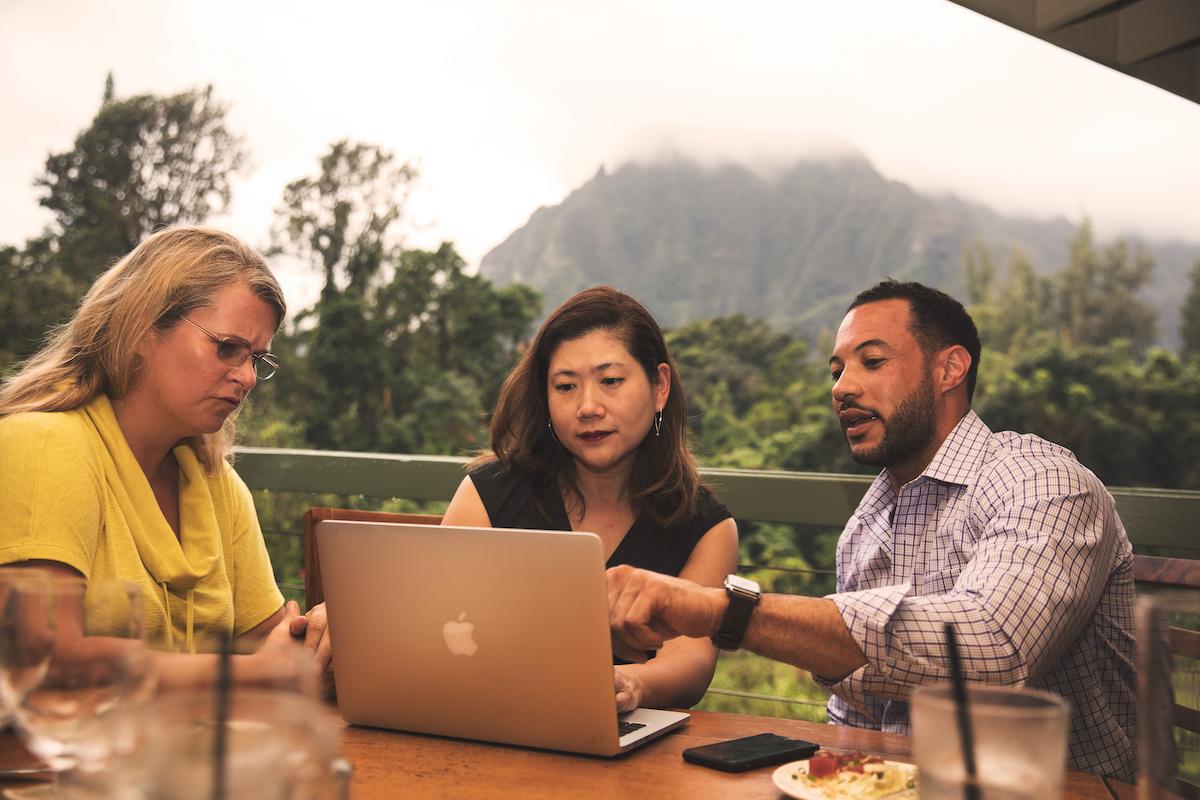How Booz Allen and Ho'ōla Nā Pua Are Using Data and Design Thinking to Combat Sex Trafficking in Hawaii

Nearly 3,000 local Hawaii youth are estimated to be at risk for commercial sexual exploitation. Even as the COVID-19 pandemic shut much of the world down, this crime did not disappear. Demand merely shifted online, making many of its victims even more vulnerable to violence.
Jessica Munoz co-founded the Honolulu, Hawaii-based Hoʻōla Nā Pua, which means “New Life for Our Children,” to combat sex trafficking in the island state. Today, the organization is working with Booz Allen to use data and design thinking in the fight.
Sharpening understanding, strengthening collaboration
Design thinking is a rigorous human-centered innovation methodology focused on actionable insights, unexpected ideas, and learning by testing rather than guessing. In workshops, Booz Allen and speakers from research institutions, nonprofit organizations, and academia apply design thinking to data collected from federal and national agencies.
The goal: to gain qualitative knowledge about the issues of sex trafficking and commercial sexual exploitation of children and use this knowledge to reframe the problem and build collaborative efforts to combat exploitation. Representatives from law enforcement, government agencies, health and service providers, and the community are invited to attend.
“These workshops help us reach the public in Hawaii and address the myths that ‘it doesn’t happen around here’ or ‘people are choosing that life,’” said Mea Spady, Hoʻōla Nā Pua’s Director of Development.
“Data drives decisions. We need the statistical data to convince state legislators and law enforcement of the scope and gravity of the problem,” said Booz Allen Senior Associate Julie Hong. The information shared, analyzed, and discussed in the rapid innovation workshops gives Hoʻōla Nā Pua and stakeholders a way to talk about the problem, both in terms of cases and contributing factors, and work together toward data-driven solutions.
The most recent workshop, for example, examined the crime through a business and economics lens. For example, sex traffickers in Hawaii are using increasingly sophisticated tactics, experiencing 70%-80% profit margins, and face very low odds of prosecution.
“We need to use technology to our advantage to combat them,” said Booz Allen Lead Associate Ann Nagel.
A powerful partnership
Booz Allen’s relationship with Hoʻōla Nā Pua began in 2018, when Munoz met Hong at a community event. Munoz was aware of the critical technology work Booz Allen was already providing for its clients – and that Hoʻōla Nā Pua had a need for similar data-driven solutions.
With the support of Vice President Bob Lietzke and Hong, Booz Allen’s support of Hoʻōla Nā Pua grew and they empowered volunteers in their Honolulu office to support awareness-building efforts of the human trafficking problem in Hawaii.
“Once we learned about the issue and what the Hoʻōla Nā Pua team was doing, we knew we needed to help,” Lietzke said.
In addition to the design thinking workshops, Booz Allen has supported Hoʻōla Nā Pua through fundraising and advocacy. The next steps: Working with Hoʻōla Nā Pua to apply frameworks to the issue and bring diverse stakeholders together even more, from policymakers to prosecutors to the general public.
“Exploitation and abuse thrive in secrecy and shame,” said Munoz. “The more connected we are in raising the level of the conversation, the greater our impact will be in decreasing the stigma around the issues. Together we can shine the light and ignite the chain reaction required to end exploitation.”
Learn more about the Booz Allen Honolulu office, and how Booz Allen is using data science and design thinking to solve the world’s toughest problems.

